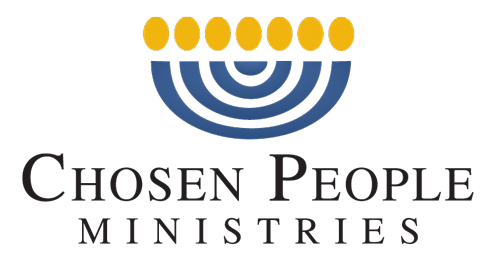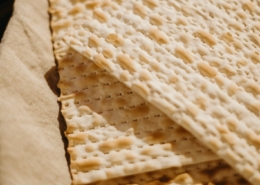 https://www.chosenpeople.com/wp-content/uploads/2023/04/rsz_apr2023-newsletter-ukraine-final-scaled.jpg
2048
1820
cpm
https://www.chosenpeople.com/wp-content/uploads/2020/01/CPM-Logo-small-495x256.png
cpm2023-04-14 09:32:122023-04-14 09:46:452023 April Newsletter
https://www.chosenpeople.com/wp-content/uploads/2023/04/rsz_apr2023-newsletter-ukraine-final-scaled.jpg
2048
1820
cpm
https://www.chosenpeople.com/wp-content/uploads/2020/01/CPM-Logo-small-495x256.png
cpm2023-04-14 09:32:122023-04-14 09:46:452023 April NewsletterYeshua the Messiah: A Prophet Greater than Moses
Shalom in His grace. Thanks for taking a moment to catch up with Your Mission to the Jewish People, especially during the Passover and Easter season when the connection between the Old and the New Testaments is so clear. During this time of year, we see the death and resurrection of Jesus foreshadowed in the Old and gloriously fulfilled in the New!
In this issue, we explore the relationship between two of our greatest Jewish biblical heroes—Moses and Jesus. It is fascinating to consider how these two centerpieces of our faith spoke about one another: Jesus referred back to Moses, while Moses pointed ahead to Messiah. Indeed, the Bible describes both Moses and Jesus as prophets. The tremendous messianic prediction in Deuteronomy 18 is probably familiar:
The Lord said to me, “They have spoken well. I will raise up a prophet from among their countrymen like you, and I will put My words in his mouth, and he shall speak to them all that I command him. It shall come about that whoever will not listen to My words which he shall speak in My name, I Myself will require it of him.” (Deut 18:17–19)
This prophet will speak God’s last word for humanity; therefore, we must obey him!
The Importance of Moses for the Jewish People
I grew up in a traditional Jewish home in New York City. My religious training was Orthodox, and I knew Moses was the most important Jewish person who ever lived. He was greater than David, the prophets, and even Abraham! God gave the Law on Mount Sinai through Moses, and in almost every version of modern Judaism, Moses is the central figure of the Jewish faith. For Jewish people, no one is more important than Moses.
We learn, especially those raised Orthodox, the Messiah will come and be a great leader, but he will not necessarily be more significant than Moses himself. You might ask if Jewish people believe Moses is more important than a future Messiah. In the down-to-earth, everyday understanding of Judaism, the vote would be very close!
Because of this view, the following words of the writer of Hebrews may have struck a discordant note, even back then, in the hearts and minds of whoever read this brief treatise:
Therefore, holy brethren, partakers of a heavenly calling, consider Jesus, the Apostle and High Priest of our confession; He was faithful to Him who appointed Him, as Moses also was in all His house. For He has been counted worthy of more glory than Moses, by just so much as the builder of the house has more honor than the house. For every house is built by someone, but the builder of all things is God. Now Moses was faithful in all His house as a servant, for a testimony of those things which were to be spoken later; but Christ was faithful as a Son over His house—whose house we are, if we hold fast our confidence and the boast of our hope firm until the end. (Heb 3:1–6)
Judaism also tells many stories about the greatness of Moses; he is Moshe Rabbeinu, our most excellent teacher of all time—or so most Jewish people think! According to the very words of Moses himself, however, there is more to his story of redemption.
Jesus’ Superiority to Moses in the New Covenant
The writer of Hebrews argued more explicitly than the passage in Deuteronomy for the superiority of Jesus and the New Covenant He inaugurated. Hebrews 3:1–6 describes how Jesus would in all ways be superior to Moses, especially verse 3: “For He has been counted worthy of more glory than Moses, by just so much as the builder of the house has more honor than the house” (Heb 3:3).
Hebrews 11 also reveals this point of Jesus’ superiority. The author took us on a tour of the “Heroes of Faith,” biographical snapshots of previous giants of the faith. The author focused on their faithfulness and achievements, underscoring the entire premise of the book of Hebrews.
The argument of Hebrews is simply this: Jesus is superior to all those who came before Him. He is better than the angels, Moses, the Levitical priests, and even the high priest. He also provides a better rest, a better sacrifice, a better covenant, and a better hope!
However, by asserting Yeshua is better, the author does not suggest the angels, the patriarchs, Moses, the Levites, and the Old Testament are no longer valuable! Instead, it means Yeshua is God’s ultimate revelation for the world’s blessing:
God, after He spoke long ago to the fathers in the prophets in many portions and in many ways, in these last days has spoken to us in His Son, whom He appointed heir of all things, through whom also He made the world. And He is the radiance of His glory and the exact representation of His nature, and upholds all things by the word of His power. (Heb 1:1–3)
The apostle John also records Jesus mentioning Moses while speaking to Jewish people who were still trying to make up their minds about Him and His claims:
You search the Scriptures because you think that in them you have eternal life; it is these that testify about Me; and you are unwilling to come to Me so that you may have life. Do not think that I will accuse you before the Father; the one who accuses you is Moses, in whom you have set your hope. For if you believed Moses, you would believe Me, for he wrote about Me. But if you do not believe his writings, how will you believe My words? (John 5:39–40, 45–47)
Jesus certainly believes Moses wrote about Him and urges His listeners to consider Moses’ words. These passages in Hebrews and John summarize the relationship between Jesus and the Hebrew Scriptures, and how the New Covenant fulfills the Old Testament. The Old Covenant and the great saints listed in Hebrews were part of the plan of God, which ultimately led to the glorious fulfillment in the Messiah Himself.
Jesus, the Perfect Leader
I. M. Haldeman, a fiery Baptist preacher who pastored the First Baptist Church of Manhattan for forty years and was a great friend of Chosen People Ministries, wrote about the uniqueness of Moses and how he foreshadowed the Messiah Jesus:
The life of Moses presents a series of striking antitheses. He was the child of a slave, and the son of a queen. He was born in a hut, and lived in a palace. He inherited poverty, and enjoyed unlimited wealth. . . . He was educated in the court, and dwelt in the desert. He had the wisdom of Egypt, and the faith of a child. He was fitted for the city, and wandered in the wilderness. He was tempted with the pleasures of sin, and endured the hardships of virtue. He was backward in speech, and talked with God. He had the rod of a shepherd, and the power of the Infinite. He was a fugitive from Pharaoh, and an ambassador from Heaven. He was the giver of the Law, and the forerunner of Grace. He died alone on mount Moab, and appeared with Christ in Judea.
I would love to have heard this powerful and passionate pastor preach these words! What a beautiful description of the greatness of Moses’ character.
Moses himself told us someone like himself would appear one day as the ultimate leader of the Jewish people. Though Moses was a great political, religious, and military leader, this meek and humble prophet pointed to an even greater Jewish leader—the Messiah Jesus. Though he may not have had a complete understanding, Moses pointed to a greater prophet—God Himself enwrapped in flesh, proclaiming a greater exodus through His finished work on Calvary. Jesus offers a greater revelation of divine truth to Jewish people and Gentiles and invites us all to obey His words.
Jesus is God’s final word of grace, salvation, and hope for a dark and sinful world.
Yeshua is the perfect leader. Moses himself understood the limits of his humanity. He was superb but far from perfect. He brought the Israelites closer to God, and he brought God closer to the Israelites. But Yeshua brought a better and permanent salvation through His once-for-all sacrifice for sin and triumphant resurrection from the dead. He also provided an eternally durable and glorious New Covenant for Israel and the nations of the world (Jeremiah 31:31–35).
The Passover prophetically portrays this New Covenant, which foreshadows the work of Messiah as the perfect lamb whose blood was shed and smeared over the doorposts of our hearts, enabling us to enter the very presence of God Himself forever (John 1:29).
Moses was a great leader whom God used to reveal His plan and purposes for the Jewish people, but he pointed to someone greater than himself. We now know this greater One has come, and His name is Yeshua, the Savior of the world. We celebrate this salvation during Passover and Easter by remembering the exodus led by Moses, who paved the way for eternal salvation for all who believe in Jesus.
The One greater than Moses has come, and His name is Jesus the Messiah!
Have a blessed Passover and Easter season. Remember to pray for and spread the good news to those who first brought the message of salvation to you—the Jewish people!
A Redeemer Like Moses
In Rabbinic Literature
The concept of a future redeemer similar to Moses is common in rabbinic literature dating to the seventh century. The rabbis who compiled the Talmud and other key Jewish texts in the Middle Ages assumed the final messianic redeemer would follow the pattern of the first redeemer, Moses. Thus, not surprisingly, they noted a multitude of patterns between the two. Here are a few examples:
Pesikta 5:8 reads, “As the first one appeared among Israel and then disappeared from among them, so the last redeemer will appear among Israel and then disappear from among them.” In other words, just as Moses had “two comings” to Israel, the Messiah will have a first coming and a second coming.
Just as the first redeemer caused manna to come down for the people of Israel, so too the last redeemer will cause manna to come down (see Psalm 72:16).
As the first redeemer caused the well to give water (Numbers 20:11), so the last redeemer will cause water to spring forth (see Joel 3:18).
These examples show how the concept of a Messiah “like Moses” is relatively common in rabbinic Judaism. Admittedly, the connection between Moses and a future Messiah may not be explicit within Deuteronomy 18:15. Still, it probably has its origins there: “The Lord your God will raise up for you a prophet like me [Moses] from among you, from your countrymen, you shall listen to him.”
Parallels between Moses and Messiah
| Moses survived the slaughtering of infant males at the hands of Pharaoh (Exodus 1:15–22). | Messiah survived the slaughtering of infant males at the hands of Herod, who was targeting the newborn King he heard about (Matthew 2:3–18). |
| Moses’ parents hid him for three months after he was born because they saw he was no ordinary child (Exodus 2:2; Hebrews 11:23). | Messiah’s parents fled to Egypt to hide Him from King Herod’s search (Matthew 2:13–15) because He was “King of the Jews” (Matthew 2:2). |
| Moses stripped himself of the glories of Egypt and chose to identify and suffer alongside his people (Hebrews 11:24–26). | Messiah emptied Himself of all the glories of heaven and chose to suffer to the point of death for His people (Philippians 2:6–8). |











